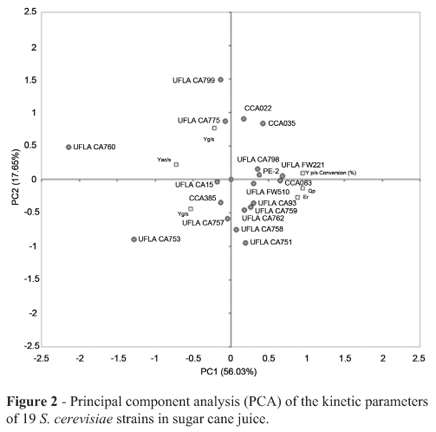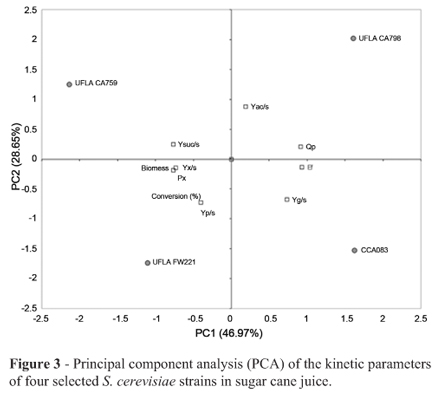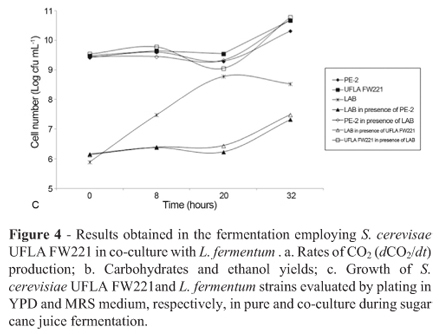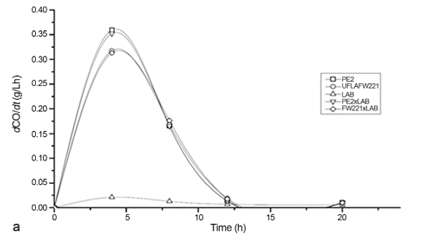Sixty six indigenous Saccharomyces cerevisiae strains were evaluated in stressful conditions (temperature, osmolarity, sulphite and ethanol tolerance) and also ability to flocculate. Eighteen strains showed tolerant characteristics to these stressful conditions, growing at 42 ºC, in 0.04% sulphite, 1 mol L-1 NaCl and 12% ethanol. No flocculent characteristics were observed. These strains were evaluated according to their fermentative performance in sugar cane juice. The conversion factors of substrates into ethanol (Yp/s), glycerol (Yg/s) and acetic acid (Yac/s), were calculated. The highest values of Yp/s in sugar cane juice fermentation were obtained by four strains, one isolated from fruit (0.46) and the others from sugar cane (0.45, 0.44 and 0.43). These values were higher than the value obtained using traditional yeast (0.38) currently employed in the Brazilian bioethanol industry. The parameters Yg/s and Yac/s were low for all strains. The UFLA FW221 presented the higher values for parameter related to bioethanol production. Thus, it was tested in co-culture with Lactobacillus fermentum. Besides this, a 20-L vessel for five consecutive batches of fermentation was performed. This strain was genetically stable and remained viable during all batches, producing high amounts of ethanol. The UFLA FW221 isolated from fruit was suitable to produce bioethanol in sugar cane juice. Therefore, the study of the biodiversity of yeasts from different environmental can reveal strains with desired characteristics to industrial applications.
alcoholic fermentation; biofuel; fermentation kinetics; UFLA FW221; Saccharomyces cerevisiae












